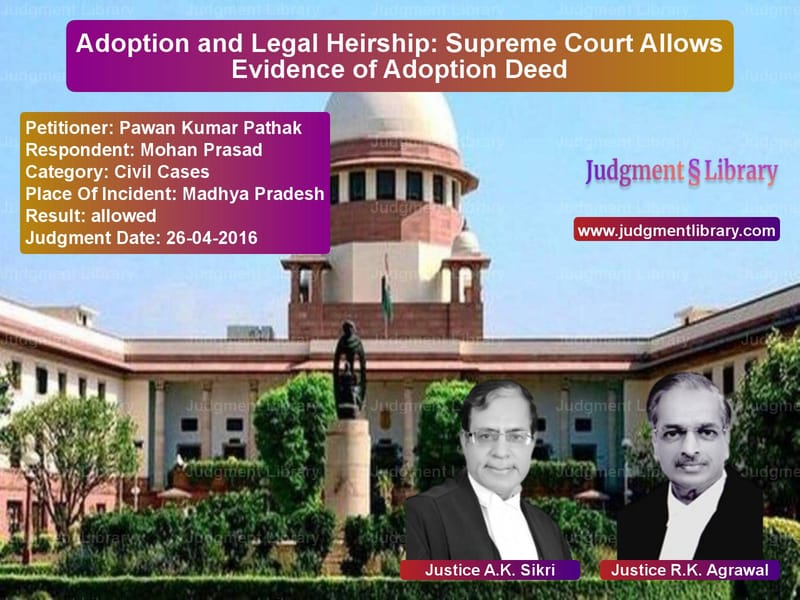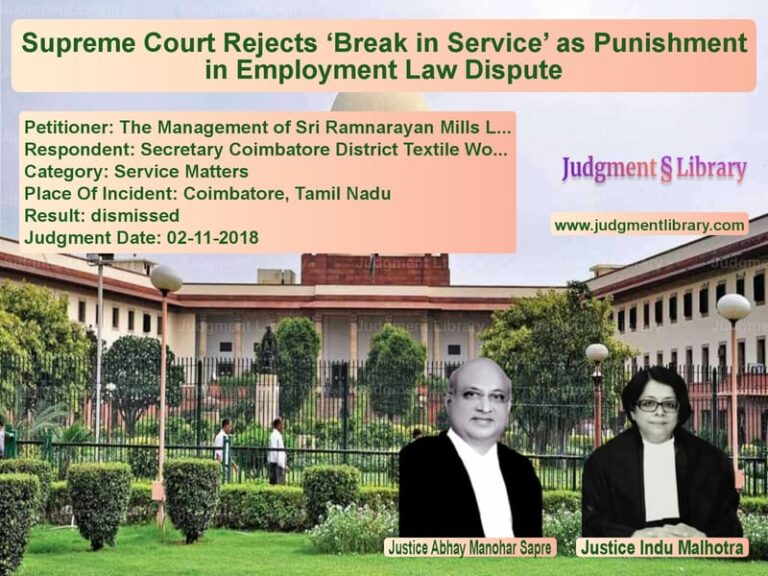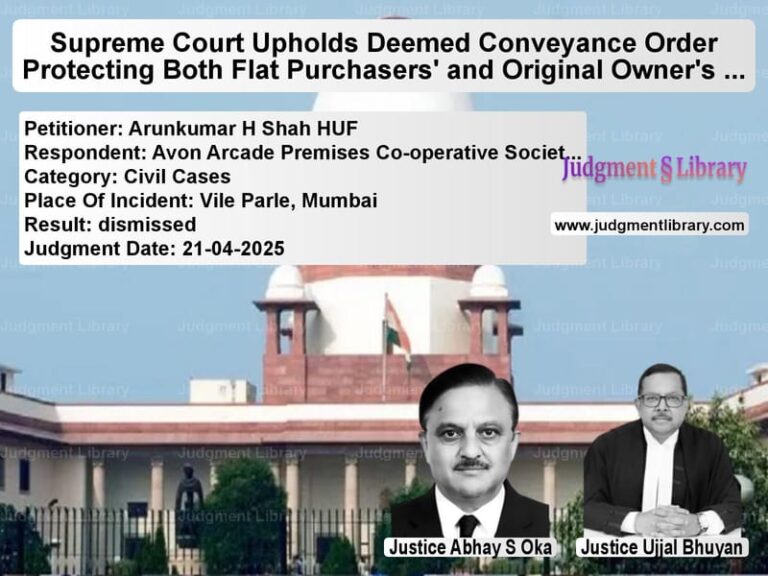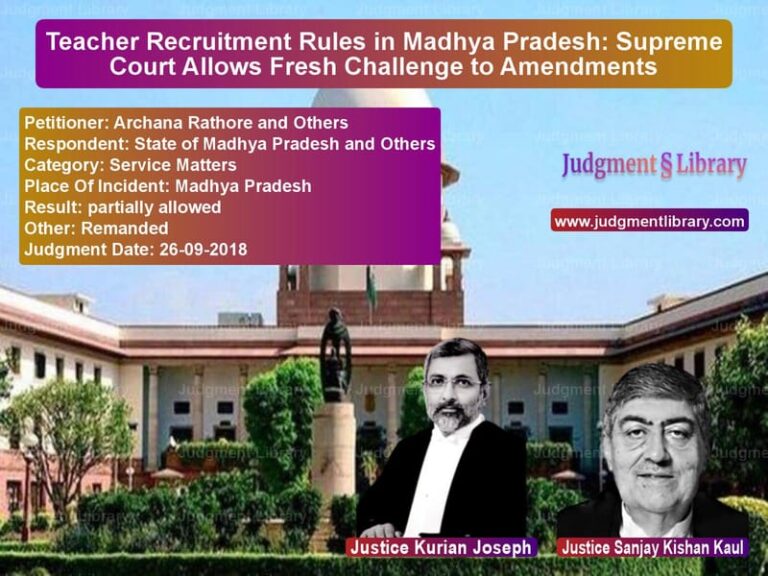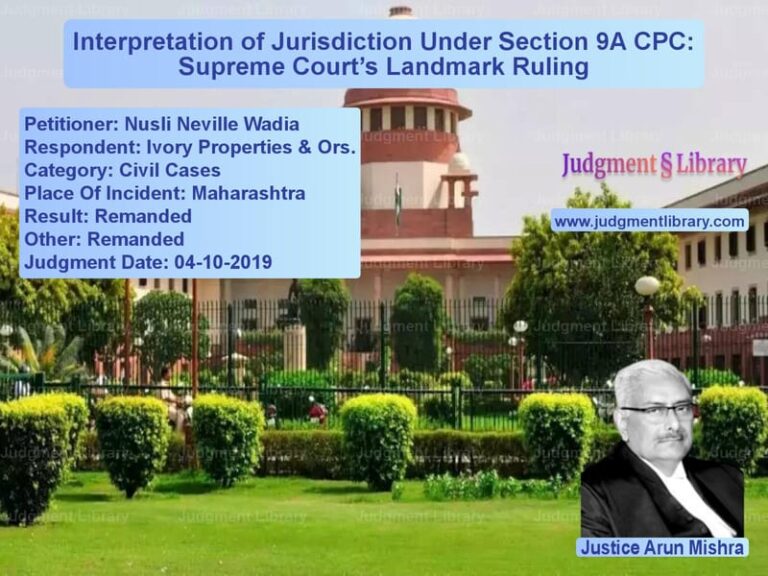Adoption and Legal Heirship: Supreme Court Allows Evidence of Adoption Deed
The Supreme Court of India in Civil Appeal No. 4456 of 2016 ruled on the admissibility of an adoption deed as evidence in a case concerning legal heirship and inheritance. The case involved Pawan Kumar Pathak (Appellant) and Mohan Prasad (Respondent). The primary issue before the Court was whether the appellant could present an adoption deed to prove his status as the adopted son and rightful heir of a deceased individual.
The appellant had filed a suit before the Additional District Judge, Gwalior, Madhya Pradesh, claiming sole ownership of ancestral property, arguing that he was the only legal heir of his deceased father, Hira Lal, and uncle, Mahadev Prasad. However, the trial court refused to admit his adoption deed as evidence, citing that it was beyond the original pleadings. The High Court upheld this decision, leading the appellant to approach the Supreme Court.
Petitioner’s Arguments
The appellant contended that:
- He had consistently claimed in his pleadings that he was the son and sole legal heir of Hira Lal.
- Under Section 3(57) of the General Clauses Act, 1897, the term ‘son’ includes an adopted son, making it unnecessary to explicitly state his adopted status in the pleadings.
- The rejection of his attempt to amend the plaint to include a reference to adoption was irrelevant to the admissibility of the adoption deed as evidence.
- The adoption deed was a public document registered in 1974 and should be admitted as evidence to establish his legal heirship.
Respondents’ Arguments
The respondent opposed the appellant’s claim, arguing that:
- The appellant had never pleaded that he was an adopted son and had only claimed to be the biological son of Hira Lal.
- His earlier attempt to amend the pleadings to include the adoption claim was rejected, making the introduction of the adoption deed inadmissible.
- Allowing the adoption deed as evidence would amount to filling in a legal lacuna, which is impermissible under procedural law.
Judgment
The Supreme Court overturned the decisions of the lower courts and ruled in favor of the appellant. The Court held:
“Once the law recognizes adopted son to be known as son, we fail to understand why it was necessary for the appellant to plead that he was the adopted son.”
The Court further clarified:
“His averment to the effect that he was the only son, according to us, would be sufficient to lay the claim of inheritance on that basis.”
It also noted that the adoption deed was a public document, registered more than 40 years ago, and should be admitted as evidence. The Court ruled that:
- The trial court must allow the adoption deed to be introduced as evidence.
- The trial court should not have rejected the document solely on procedural grounds.
- The case should be expedited as it has been pending since 2007.
Key Takeaways
- An adopted son is legally recognized as a son under the General Clauses Act, 1897, making it unnecessary to specify adoption in legal pleadings.
- Registered public documents, such as adoption deeds, should be admitted as evidence even if they were not explicitly referenced in the original pleadings.
- The ruling strengthens inheritance rights for adopted children and ensures fair procedural justice in civil suits.
This judgment underscores the importance of substantive justice over procedural technicalities, reaffirming the legal standing of adopted heirs in inheritance disputes.
Don’t miss out on the full details! Download the complete judgment in PDF format below and gain valuable insights instantly!
Download Judgment: Pawan Kumar Pathak vs Mohan Prasad Supreme Court of India Judgment Dated 26-04-2016-1741854753315.pdf
Direct Downlaod Judgment: Direct downlaod this Judgment
See all petitions in Property Disputes
See all petitions in Succession and Wills
See all petitions in Judgment by A.K. Sikri
See all petitions in Judgment by R K Agrawal
See all petitions in allowed
See all petitions in supreme court of India judgments April 2016
See all petitions in 2016 judgments
See all posts in Civil Cases Category
See all allowed petitions in Civil Cases Category
See all Dismissed petitions in Civil Cases Category
See all partially allowed petitions in Civil Cases Category

